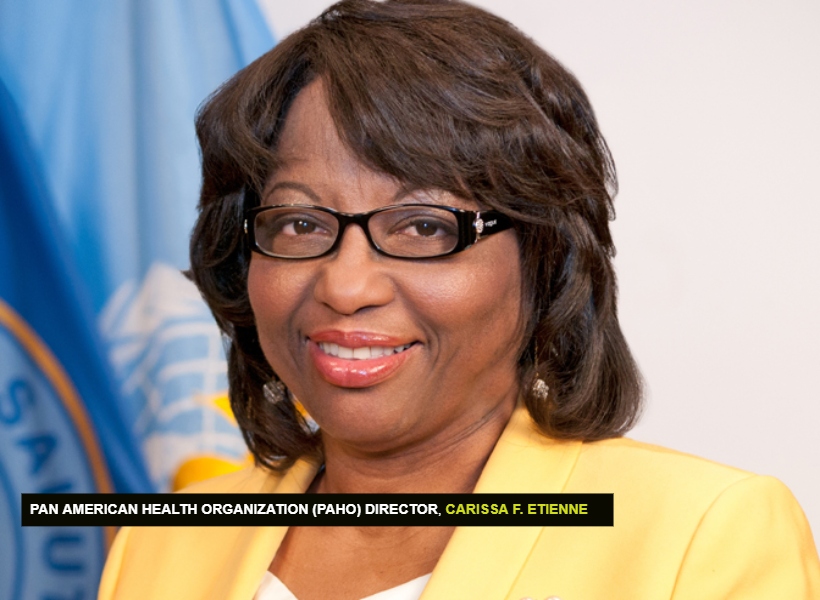Over two-thirds of people in Latin America and the Caribbean have now received two doses of COVID-19 vaccine while some countries have yet to reach even half of their populations, said the Pan American Health Organization (PAHO) Director Carissa F. Etienne.
The Director is urging those who have not yet done so to get vaccinated and ensure their loved ones are also protected.
“COVID-19 vaccines work and are very safe,” the Director said in a media briefing today. “They are protecting most people in our region from the worst consequences of COVID-19 infection.”
Thanking the efforts of healthcare workers, scientists, policymakers and individuals, Dr. Etienne highlighted that 14 countries and territories of the region have already reached the WHO goal of vaccinating 70% of their populations ahead of the June 30th target, and a further eight countries have reached over 60% coverage.
Dr. Etienne highlighted that as of this month, PAHO’s Revolving Fund has delivered more than 141 million doses of COVID-19 vaccines in partnership with COVAX and with the support of donors.
However, while there are now sufficient supplies of COVID-19 vaccine to meet demand everywhere in the Americas, some countries continue to lag behind.
In the Caribbean, less than 30% of people have received their first vaccine in Haiti, Jamaica, Saint Vincent and the Grenadines, and St. Lucia, and in Latin America, Guatemala, Guyana and Paraguay have yet to reach 50% coverage.
PAHO is now working with countries to provide technical assistance to vaccination campaigns, as well as planning and communications support to help close the gaps.
But individuals also have a role to play, urged the Director. “Vaccination is a family affair, and it’s up to all of us to make sure our loved ones are protected,” she said.
“If you or a family member have not yet been vaccinated against COVID-19, talk to your healthcare provider about your questions and doubts,” she added.
Dr. Etienne also urged countries to integrate their COVID-19 vaccination efforts into routine immunization campaigns. This will enable pregnant women to get their COVID vaccine alongside their flu shot and tetanus, diphtheria and pertussis vaccines, and will also allow parents to get their shot while their children get protected against diseases like measles and polio.
Similarly, the emergency infrastructure that was set up to get COVID-19 vaccines into arms as quickly as possible should also be leveraged to improve routine vaccination uptake, making it “more convenient and accessible for families to catch up on all their shots at once,” said the Director.
The COVID vaccination effort “has shown us that success is possible when countries and people work together to embrace vaccines,” she said.
Ahead of Vaccination Week in the Americas, which begins April 23, Dr. Etienne also called on countries to step up efforts to reach at least 70% of their populations with COVID-19 vaccines.
Elderly people, those with preexisting conditions, health care workers and pregnant women should be the primary focus of these campaigns as they are most at risk of hospitalization and death due to COVID.
“Let’s use our knowledge and perseverance to protect as many people, and save as many lives as possible,” she said.
Turning to the COVID-19 situation in the region, while the number of COVID-19 infections reported in the Americas dropped by 2.3% this week and continue to decline, cases did increase by 11.2% in North America and have also spiked in the Caribbean.
The number of deaths has decreased by 15.2% (to 4,797), showing that vaccines are working well to protect people from hospitalization and death, Dr. Etienne noted.











